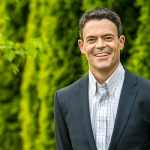 Xueqing (Snowy) Zhou is a fourth-year Kinesiology student in the Interdisciplinary Stream. She will be graduating in May 2021 and will pursue a Master of Science in Kinesiology at UBC in the fall, focusing on exercise, neurophysiology and urogenital health.
Xueqing (Snowy) Zhou is a fourth-year Kinesiology student in the Interdisciplinary Stream. She will be graduating in May 2021 and will pursue a Master of Science in Kinesiology at UBC in the fall, focusing on exercise, neurophysiology and urogenital health.
Originally from China, Xueqing was drawn to kinesiology because of a knee injury she suffered in high school which sparked her interest in the human body and movement. She states that throughout her undergraduate journey her favourite classes have been System Physiology, Neuroanatomy and Neuromuscular Integration of Human Movement.
After joining Dr. Tania Lam’s Human Locomotion Research Lab in 2020, Xueqing began a project that turned into a systematic review of exercises and urogenital function in individuals with spinal cord injury, which was published in the Journal of Neurotrauma this February. “That was probably the proudest moment in my undergrad years at UBC KIN”, she says. It was this experience that helped her confirm her passion and plans after undergrad: “I found learning through research projects to be extremely effective and rewarding. Bladder/sexual health is a salient topic that has fortunately received increasing attention, especially in the context of spinal cord injury. I am excited to continue exploring the power of exercise from a neurophysiological perspective.”
Outside of academia, Xueqing enjoys teaching fitness classes at BodyWorks. Her passion for educating the community has involved her in multiple campus health initiatives, including the UBC Cancer Association Club, where she collaborates with like-minded peers and creates the Cancer Decoded comics to communicate cutting-edge research findings in a digestible form.
Looking back at her undergrad years, Xueqing says, “I have benefited so much from the comprehensive support system in the KIN community, especially the Mentorship Program.” The most important piece she has learned to date is to “be brave, ask questions, be open to receive, and be ready to offer”. In the future, she hopes to be trained to work in both research and clinical practices.
